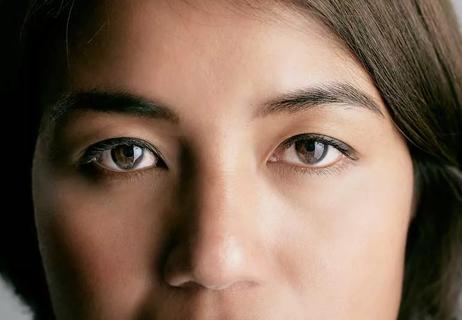Keep your eyes in tip-top shape

If you have 20/20 vision (score!) or wear glasses or contacts regularly to correct your vision, you might assume you’re doing everything right to protect your eyesight.
Advertisement
Cleveland Clinic is a non-profit academic medical center. Advertising on our site helps support our mission. We do not endorse non-Cleveland Clinic products or services. Policy
But developing a few additional healthy habits now may pay off for your vision down the road.
As you get older, your risk of developing some of the most common causes of blindness, including cataracts, glaucoma and age-related macular degeneration, goes up.
Luckily, there are steps you can take to reduce your risk and protect your vision long-term.
Research supports that a number of nutrients can help protect vision, says optometrist Kristi Stalker, OD. They include:
Advertisement
“I wouldn’t recommend that people take the high-dose vitamins for macular degeneration unless they actually have the condition, but I do think that taking a multivitamin or making sure you eat a wide variety of fruits and vegetables is very important,” Dr. Stalker says.
Many people are diligent about applying sunscreen before they go outside to protect their skin — and you should be just as diligent about protecting your eyes.
Excessive UV exposure can damage the front and back of the eyes and contribute to a number of problems that lead to vision loss, including cataracts, macular degeneration and eye cancers. Choose a good-quality pair of sunglasses that wrap around your eye area, and make sure the lenses provide 100% UV spectrum protection.
Staring at a computer, smartphone or tablet screen for hours every day strains your eyes (computer vision syndrome is a real thing). “We recommend taking a 20 second break every 20 minutes to look 20 feet away,” Dr. Stalker explains.
“This is to relax your eyes and let yourself blink, because we find that people don’t blink nearly as often when they’re looking at a computer screen.”
Blinking lubricates the eye, so not blinking can make your eyes feel dry. Dr. Stalker recommends using over-the-counter eye drops four times a day if dry eyes cause you discomfort.
Make a visit to an eye doctor part of your annual preventive care routine — and not just to find out whether your glasses prescription has changed. With a comprehensive eye exam, doctors can detect early signs of eye diseases like glaucoma and AMD that might not yet be causing you any symptoms. These conditions are better treated early to minimize or slow vision loss.
Plus, your eyes can hold clues about other aspects of your health. Sometimes, signs of serious conditions like diabetes and high blood pressure can affect your eyes in ways that an optometrist or ophthalmologist can see during a routine exam.
So just because your eyes aren’t bothering you now doesn’t mean you should ignore them. Take these small steps now to manage your screen time, sun time and nutrition, and your eyes will thank you.
Advertisement

Sign up for our Health Essentials emails for expert guidance on nutrition, fitness, sleep, skin care and more.
Learn more about our editorial process.
Advertisement

Act quickly by locating the object, gently removing the debris and flushing your eye

The benefits of these drugs typically outweigh potential risks — but talking about your eye health and GLP-1s with your provider is advised

Once your baby’s eyes are exposed to more light, they may start to deepen in hue or change color altogether, usually between 3 and 9 months

Many factors, like eyelid irritation, cosmetic lash procedures and underlying health conditions, can affect your eyelashes

A diet built around fruits, vegetables and healthy fats is a clear 20/20 benefit for your vision

It takes millions of moving parts within the eye to make the power of vision possible

Cosmetic procedures such as iris implants and corneal tattooing bring a risk of vision loss

If your eyes suddenly take on a different color, it could be a sign of a medical concern

Even small moments of time outdoors can help reduce stress, boost mood and restore a sense of calm

A correct prescription helps your eyes see clearly — but as natural changes occur, you may need stronger or different eyeglasses

Both are medical emergencies, but they are very distinct events with different causes